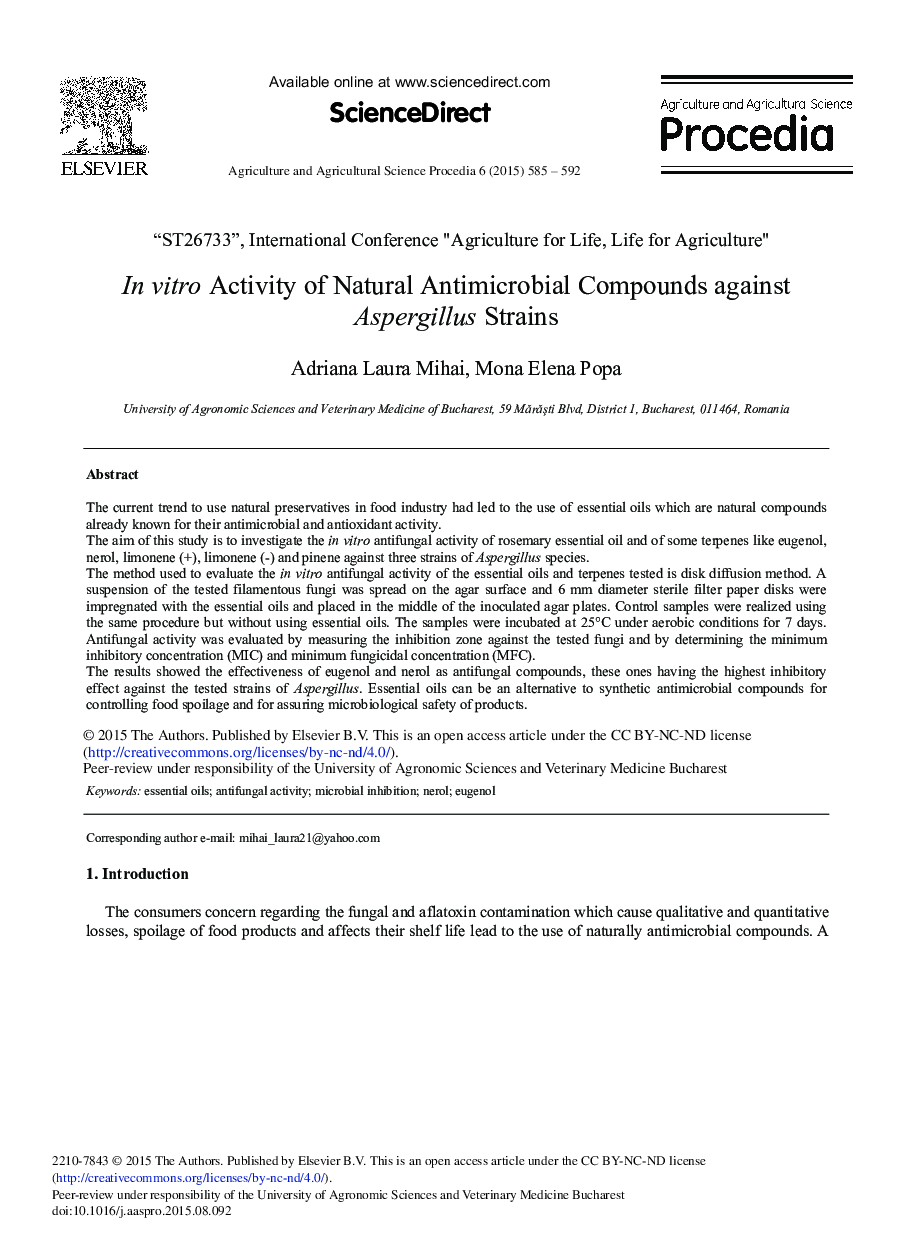| Article ID | Journal | Published Year | Pages | File Type |
|---|---|---|---|---|
| 4492484 | Agriculture and Agricultural Science Procedia | 2015 | 8 Pages |
The current trend to use natural preservatives in food industry had led to the use of essential oils which are natural compounds already known for their antimicrobial and antioxidant activity.The aim of this study is to investigate the in vitro antifungal activity of rosemary essential oil and of some terpenes like eugenol, nerol, limonene (+), limonene (-) and pinene against three strains of Aspergillus species.The method used to evaluate the in vitro antifungal activity of the essential oils and terpenes tested is disk diffusion method. A suspension of the tested filamentous fungi was spread on the agar surface and 6 mm diameter sterile filter paper disks were impregnated with the essential oils and placed in the middle of the inoculated agar plates. Control samples were realized using the same procedure but without using essential oils. The samples were incubated at 25 °C under aerobic conditions for 7 days. Antifungal activity was evaluated by measuring the inhibition zone against the tested fungi and by determining the minimum inhibitory concentration (MIC) and minimum fungicidal concentration (MFC).The results showed the effectiveness of eugenol and nerol as antifungal compounds, these ones having the highest inhibitory effect against the tested strains of Aspergillus. Essential oils can be an alternative to synthetic antimicrobial compounds for controlling food spoilage and for assuring microbiological safety of products.
